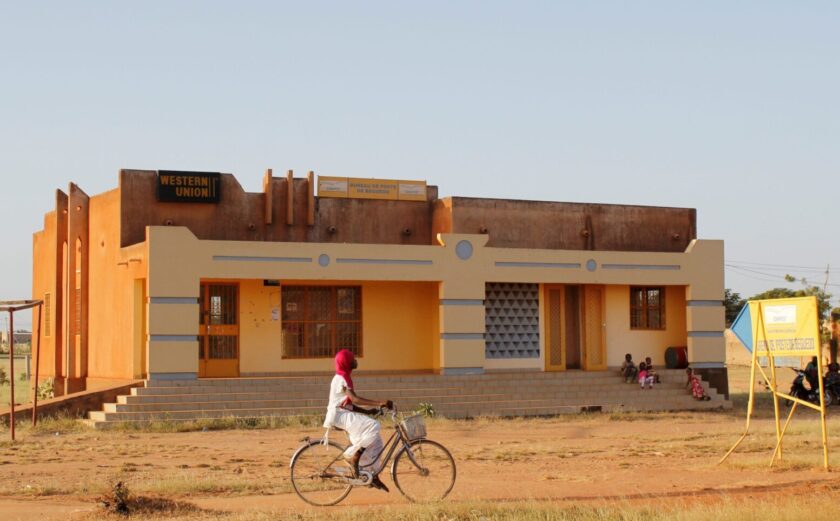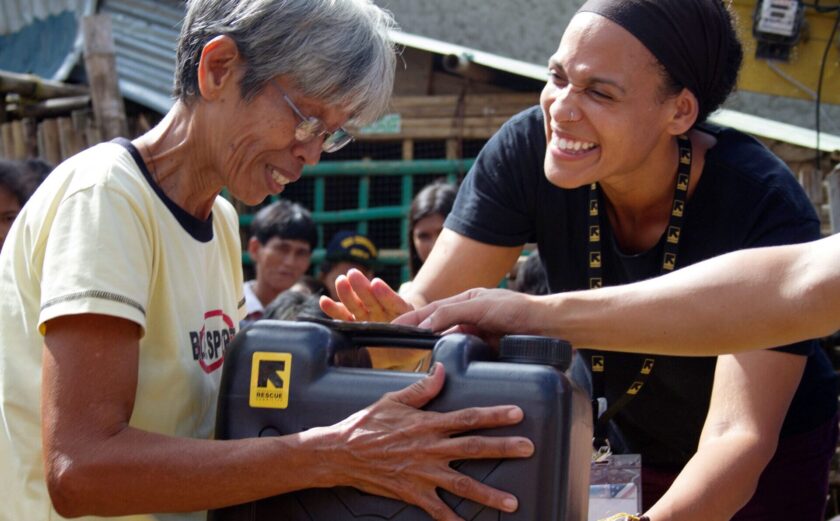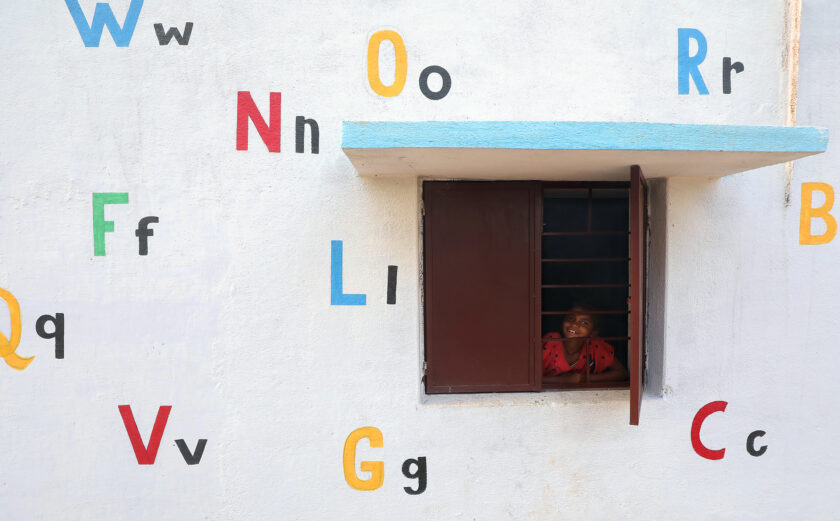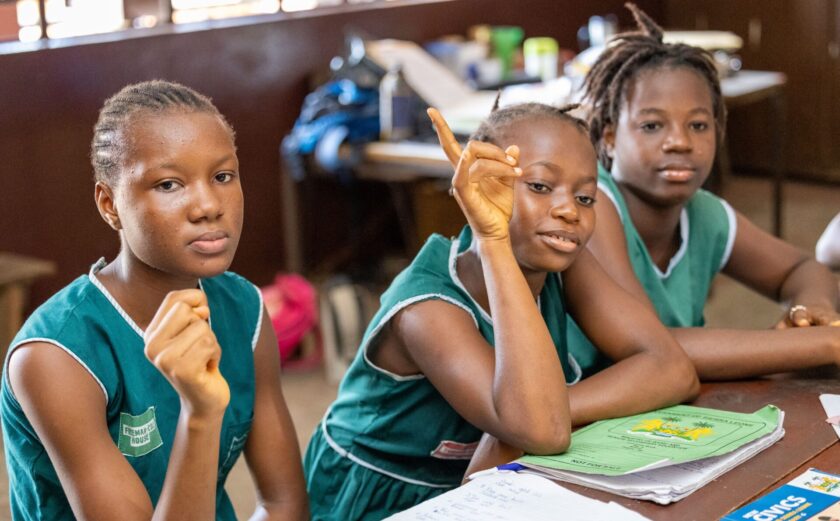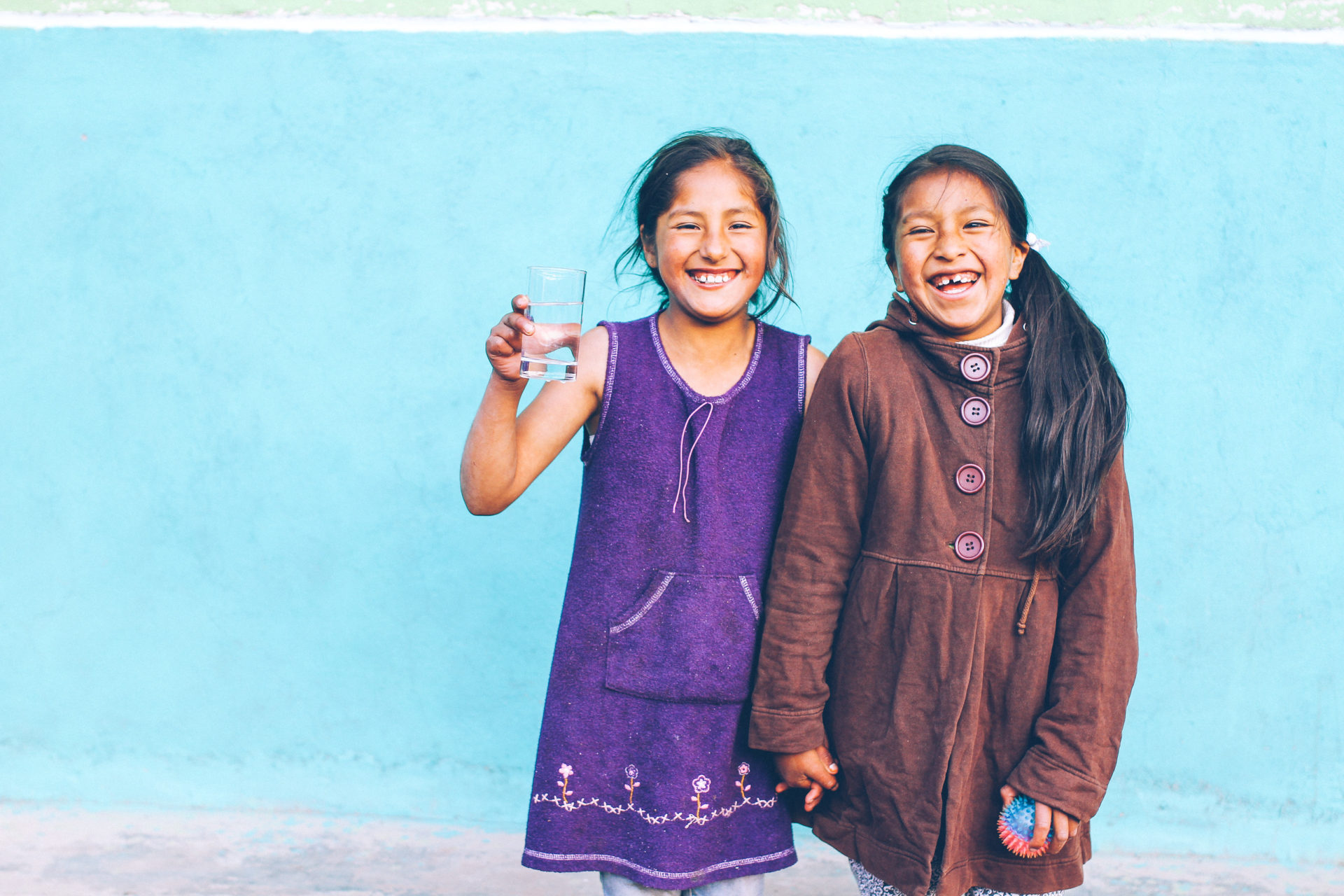
#SafeHands: InterAction Celebrates World Water Day in the Age of COVID-19
The 22nd annual World Water Day is Sunday, March 22, and never has there been a better or more important time to celebrate the importance of water to our global well-being and security.
This year, the focus is on the critical and inextricable linkage between water and climate.
Access to Water, Sanitation, and Hygiene is Critical in the Era of COVID-19
With the rapid spread of the novel coronavirus—COVID-19—around the world, the primary preventative step that healthcare professionals recommend to stop or slow the spread of the disease is to wash one’s hands with soap and water frequently. However, without access to clean water, sanitation, and hygiene (WASH), that is very hard to do.
Around the world, 2.2 billion people still lack access to a safely managed water source, 785 million people lack access to even a basic drinking water service, and 578 million people have no choice but to drink dirty water. Three billion people, or 40% of the world’s population, do not have access to basic handwashing facilities (i.e., soap and water). Half of schools in the least developed countries do not have a place for children to wash their hands.
As hospitals and clinics are doing everything they can to fight off COVID-19, handwashing becomes critical. Yet, shockingly, 1 in 4 healthcare facilities lack basic water services, 1 in 5 lack access to sanitation, and 2 in 5 do not have soap and water or alcohol-based hand sanitizer at points of care. Due to these massive access issues, healthcare facilities may contribute to the spread of COVID-19, and healthcare workers will have a harder time staying safe during the pandemic.
What Is Being Done to Address these Challenges?
Fortunately, many nongovernmental organizations (NGOs) and multilateral organizations have stepped up to both increase access to WASH and educate people on best practices. For example, UNICEF, the World Health Organization, and the International Federation of Red Cross and Red Crescent Societies teamed up to develop guidance for school staff, parents, and community members, including teaching and encouraging good hygiene practices.
WaterAid, an InterAction Member that has been working to provide and advocate for WASH around the world for decades, has been continuing its work to make sure that communities have access to clean water and hygiene. On World Water Day, WaterAid is unveiling a new safe water system in four communities in Nicaragua, which will provide 24/7 access to safe water to over 1,000 people. This project ensures that four primary schools have access to safe water, toilets, and handwashing stations. It also has 18 hygiene promotors who visit households to teach them about proper handwashing and hygiene habits.
What is the U.S. Government Doing?
Over the last several years, the U.S. government has acknowledged and prioritized the role of WASH to alleviate poverty and improve health through legislation, policy, and programs. Through the U.S. Government Global Water Strategy and USAID’s Water and Development Plan, USAID is working to provide 15 million people with sustainable access to drinking water services by 2022. In FY 2017 alone, USAID WASH activities in 41 countries helped 3.6 million people gain access to improved water, and 3.2 million gain access to improved sanitation.
There is also bipartisan support in Congress around this issue. In the coming weeks, a bipartisan caucus in the House is set to be launched, the International Water and Sanitation Caucus, which is co-chaired by Reps. Earl Blumenauer (D-OR-3), Darin LaHood (R-IL-18), Xochitl Torres Small (D-NM-2), and Jackie Walorski (R-IN-2). This Caucus will play an important role in ensuring that the U.S. plays its part in the global effort to achieve safe drinking water, sanitation, and hygiene and to address the security impacts of water scarcity and management.
What can I do?
InterAction brings dozens of NGOs together through our Water, Sanitation, and Hygiene Working Group. Together, we work to improve government policies related to WASH issues and increase sustainable access to these basic services in the developing world, improve the integration of WASH across other development sectors like food security and climate, and prioritize service access to the communities most in need. During the COVID-19 pandemic, the Working Group has served as a hub to share resources and information about what organizations are doing and brainstorm about what more can be done. For more information about the Working Group and about how you can get involved, feel free to reach out.
Now—more than ever—is the time to highlight water, sanitation, and hygiene issues. You can help by sharing facts and encouraging U.S. leadership around the issue. On World Water Day, help spread the word on social media about the WASH access issues around the world and the importance of clean water and hygiene in the age of COVID-19.
Share by using the following hashtags: #WorldWaterDay, #water, #sanitation, #COVID19, and #safehands. In addition, encourage your Representative to join the new International Water and Sanitation Caucus to help elevate water, sanitation, and hygiene issues in U.S. development assistance and diplomacy.
